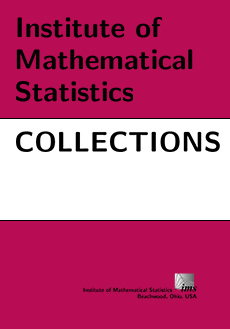Abstract
Lawrence D. Brown was born on December 16, 1940 in Los Angeles, California. He obtained his Ph.D. in mathematics from Cornell University in 1964. He has been on the faculty of the University of California, Berkeley, Cornell University, Rutgers University and, most recently, the Wharton School of the University of Pennsylvania, where he holds the Miers Busch Professorship of Statistics. Professor Brown was President of the Institute of Mathematical Statistics in 1992–1993, Coeditor of The Annals of Statistics for 1995–1997 and gave the prestigious Wald Memorial Lectures in 1985. In 1990, Professor Brown was elected to the U.S. National Academy of Sciences. In 1993, Purdue University awarded him an honorary D.Sc. degree in recognition of his distinguished achievements, and in 2002 he was named winner of the Wilks Memorial Award of the American Statistical Association.
Professor Brown is probably best known for his extensive work on the admissibility of estimators of one or more parameters. He has also published research on a broad variety of other topics including general decision theory, sequential analysis, properties of exponential families, foundations of statistical inference, conditional confidence, interval estimation and Edgeworth expansions, and bioequivalence. His current interests include functional nonparametrics, analysis of census data and queuing theory as involved in the analysis of call-center data.
Information


